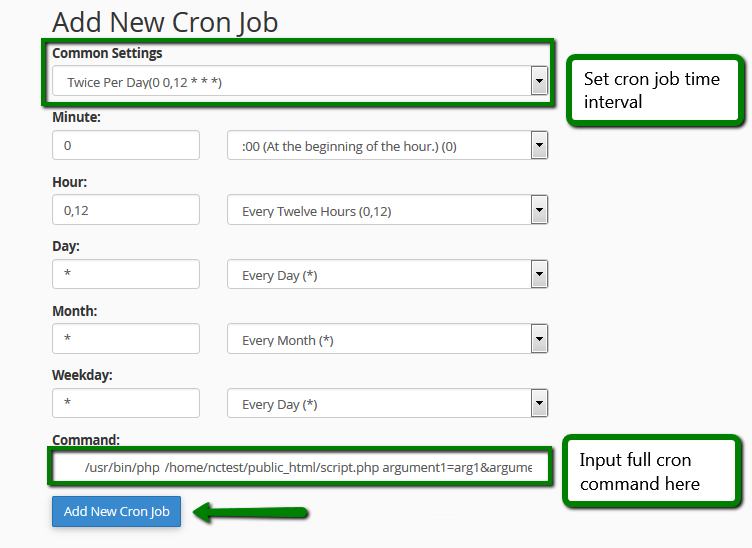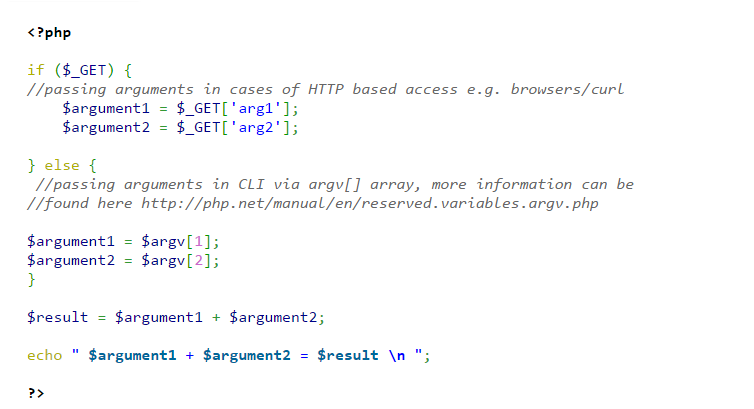If you want to operate scripts on a scheduled basis, preserve in intellect the subsequent:

1. In accordance to our Suitable Use Policy, working cron employment with intervals of much less than 5 minutes or environment up additional than 5 simultaneous cron work is not allowed on all shared servers.
2. If you do not incorporate >/dev/null 2>&1 at the finish of the command, the server will deliver an e-mail notification each and every time a cron task runs. Even though it may well be handy for testing applications and checking, if not attended, this sort of e-mail will be accumulating in the e mail account specified in the Cron e mail field, and if it is a person of your cPanel email accounts, they could result in challenges with inodes use. 

Notice: If your script does not deliver any output, it is achievable that notification e-mails are not sent either, having said that, the cron occupation is doing work. 

In order to established up a cron task, go to cPanel > segment State-of-the-art > Cron Employment menu:



Normal cron task format is as follows: 
[path to environment] [Path to script] [Script parameters] 

For illustration, if you want to run a PHP script found in the general public_html listing, the correct cron command will be:

/usr/bin/php /residence/cPaneluser/general public_html/yourscript.php


/usr/bin/php -q /household/cPaneluser/public_html/yourscript.php (for company servers)
or if you want to use a relative path (various instructions are divided by “”):

cd /dwelling/YourcPuser/community_html/ /usr/bin/php yourscript.php
cd /residence/YourcPuser/community_html/ /usr/bin/php -q yourscript.php


(for organization servers)
For Python and Perl scripts, there is no will need to use a whole route to the natural environment. The setting interpreter directive will be adequate on shared servers. 

python /dwelling/YourcPuser/public_html/yourscript.py
perl /dwelling/YourcPuser/public_html/yourscript.pl
Alternatively, you can just use curl ask for as the cron career command for the very same reason:

curl “http://yourdomain.com/script.php?argument1=arg1&argument2=arg2”
curl “http://yourdomain.com/script.py”
curl “http://yourdomain.com/script.pl”
Having said that, contrary to the very first approach, curl-dependent cron jobs will operate only if URLs specified in curl requests are resolving, e.g., DNS records for the domain are accurate and working.
You can discover much more data about the curl tool utilization here.


You can also look at if a cron command is executed the right way by functioning it in the command line by means of SSH. 

We will use this easy summing script with external parameters and operate it making use of a website browser, Cron and SSH:

Initial, let us just operate it in the browser pulling arguments just after the script title and “?” directive:
http://nctest.data/script.php?arg1=2&arg2=3




Now, in purchase to get the very same outcome by means of cron we will use this command and incorporate parameters immediately after the script route:

/usr/bin/php /property/nctest/public_html/script.php 2 3
The e mail notification contains the exact same output:

In CLI, you can operate both cron commands and CURL requests, just log into your cPanel account via SSH and input them like revealed down below:

This is it!
Will need any support? Get in touch with our HelpDesk




Recent Comments